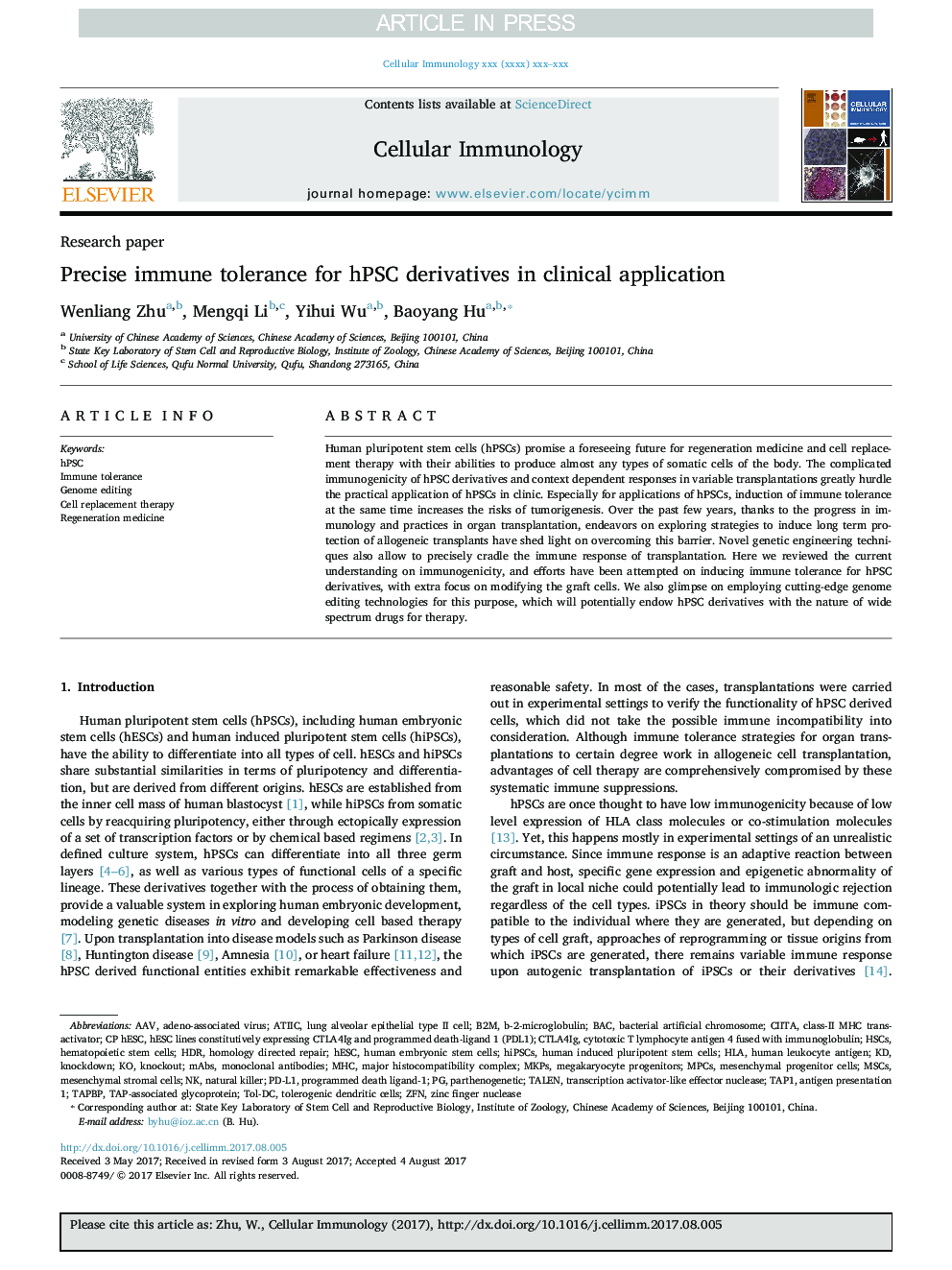| Article ID | Journal | Published Year | Pages | File Type |
|---|---|---|---|---|
| 8463569 | Cellular Immunology | 2018 | 9 Pages |
Abstract
Human pluripotent stem cells (hPSCs) promise a foreseeing future for regeneration medicine and cell replacement therapy with their abilities to produce almost any types of somatic cells of the body. The complicated immunogenicity of hPSC derivatives and context dependent responses in variable transplantations greatly hurdle the practical application of hPSCs in clinic. Especially for applications of hPSCs, induction of immune tolerance at the same time increases the risks of tumorigenesis. Over the past few years, thanks to the progress in immunology and practices in organ transplantation, endeavors on exploring strategies to induce long term protection of allogeneic transplants have shed light on overcoming this barrier. Novel genetic engineering techniques also allow to precisely cradle the immune response of transplantation. Here we reviewed the current understanding on immunogenicity, and efforts have been attempted on inducing immune tolerance for hPSC derivatives, with extra focus on modifying the graft cells. We also glimpse on employing cutting-edge genome editing technologies for this purpose, which will potentially endow hPSC derivatives with the nature of wide spectrum drugs for therapy.
Keywords
TAP1HSCsb2mHpSCCTLA4IghiPSCsAAVZFNmAbsMKPsMSCsHDRMPcsRegeneration medicinePD-L1natural killerCIITAhESCBACHuman leukocyte antigenHLAimmune toleranceCell replacement therapyTranscription activator-like effector nucleaseTALENHuman induced pluripotent stem cellshuman embryonic stem cellshematopoietic stem cellsMesenchymal stromal cellsTolerogenic dendritic cellsMesenchymal progenitor cellsProgrammed death ligand-1major histocompatibility complexMHCKnockdownknockoutzinc finger nucleasehomology directed repairGenome editingAdeno-associated virusMonoclonal antibodiesparthenogeneticMegakaryocyte progenitorsbacterial artificial chromosome
Related Topics
Life Sciences
Biochemistry, Genetics and Molecular Biology
Cell Biology
Authors
Wenliang Zhu, Mengqi Li, Yihui Wu, Baoyang Hu,
